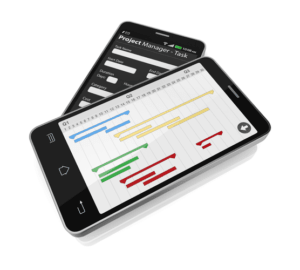
In this article, we’ll show you eight steps for effective bookkeeping, along with some of the best tools in the market that can help. An annual budget plan represents a roadmap for nonprofits and ensures the organization is on the right track. As mentioned, nonprofits have to follow strict rules to justify their financial position and fundraising expenses.
What is in Not-for-Profit Financial Statements?
For the most part, however, cash flow statements for non and for-profits are very similar. If you’ve dealt with for-profit cash flow statements nonprofit bookkeeping before, this should look very familiar. Once you’ve got a bookkeeping system in place, you need to start creating financial statements.
Don’t overthink overhead expenses.
- That way you can rest assured that they’ll be well-versed in fund accounting and able to answer nonprofit-specific questions.
- That way, you’ll identify potential bank errors, help track cash flow, and prevent fraud.
- It is important to take care of overhead before seeking out donors for a nonprofit because it demonstrates financial responsibility and a commitment to efficiency.
- Once you’ve got a bookkeeping system and a bank account in place, you need some way of making sure the information in both of those systems lines up.
- This website is using a security service to protect itself from online attacks.
- Of course, you can always generate financial statements manually, but this takes a lot of time and skill.
Many nonprofits have earned revenue streams, like membership subscriptions, tuition fees, course enrollments, or sales at company stores. In those cases, nonprofit bookkeeping includes creating accurate invoices (that account for and collect any required sales tax) to track every sale. Nonprofits must maintain thorough and accurate financial records to comply with both Generally Accepted Accounting Principles https://www.bookstime.com/articles/what-is-expense-management-automation (GAAP) and maintain their tax-exempt status with the IRS. Furthermore, nonprofit bookkeeping differs in some critical ways from for-profit bookkeeping too. Because nonprofit bookkeepers must manage restrictions, grants, and expenses in significantly more detailed ways than a for-profit bookkeeper. QuickBooks is the most well-known accounting software for nonprofits and for-profit organizations.

How to Show a Mortgage Loan on a Not for Profit Balance Sheet

COMD is the firm tax-exempt organizations trust to find solutions to their most complex problems and manage their overall accounting needs. Implementing some best practices enhances financial transparency, accountability, and organizational effectiveness in the nonprofit sector. For more information related to the blog, or any financial requirements, contact Monily. A statement of functional expenses for nonprofit organizations is a financial report that itemizes expenses according to their purpose. This report provides information on where resources have been committed and allocated within an organization.
Bookkeeping for Nonprofits: Compliance and Financial Transparency
Nonprofit accounting is the practice of tracking and accounting for funds received or disbursed by a nonprofit organization. It includes recording revenues and expenditures, tracking expenses, preparing financial statements and analysis reports, budgeting, and ensuring compliance with relevant laws and regulations. Since nonprofit organizations risk losing their tax-exempt status if they don’t comply with accounting principles, it’s vital to pay attention to proper bookkeeping. For that reason, it may be best to get high-quality accounting software that can automate everyday tasks, create reports, and minimize room for errors. Bookkeeping for a nonprofit, or nonprofit bookkeeping, represents a unique way a nonprofit organization plans, records, and reports its finances.
- The easiest way to do this is with quality accounting software that helps create standardized reports.
- And we can offer you on-demand advice on grant utilization, fundraising strategy, tax compliance, and other topics that often trip up growing nonprofits.
- Nonprofit accounting professionals must adhere to specific guidelines when they create reports.
- It typically details all revenue, such as contributions, grants, salaries, administrative costs, and program costs.
- And we’d be excited to show you how we can help your organization meet your goals.
- Their focus is to record the data so the accountant can analyze this and perform more complex functions.
- Bookkeeping for nonprofits is essential for maintaining day-to-day data entry of revenue and expenses.
At the end of the month, you must reconcile revenue and expense reports with your bank account and keep your accounts and reports up to date. All funds that come to your organization are restricted, unrestricted, or temporarily restricted. Bookkeepers must record these funds in a chart of accounts to better keep track. With the right approach and the best tool for the job, your organization can keep better books to help with transparency, annual reporting, and tracking your fiscal health.

Former executive director, bookkeeper accused of stealing $300K in nonprofit funds – Fox 5 Las Vegas
Former executive director, bookkeeper accused of stealing $300K in nonprofit funds.
Posted: Tue, 13 Feb 2024 08:00:00 GMT [source]
